Sri Lanka, one of the South Asian countries, has been shaken by the protests against the government and the economic crisis for more than a month.
The cessation of the imports of all kinds of products, from milk to fuel, causes great food shortages in the country. Frequent power cuts have also infuriated the public. The people have been protesting the government, which is blamed for the economic crisis, for over a month. The Prime Minister Mahinda Rajapaksa, who couldn’t face the protests any longer, recently announced his resignation. President Gotabaya Rajapaksa applied to the IMF for the bailout package.
We spoke with Rangana Devapriya, National Organizer of the Socialist Students Union of Sri Lanka, who personally participated in and organized the protests, about the economic and political crisis in the country.
We’ve been watching the long-running protests. The protests reached another level and the prime minister resigned. What’s going on in Sri Lanka? What caused the protests?
Deepening of the economic crisis, which has compelled to go through lot of hardships, served as the catalyst for the people’s vehemence. Since Sri Lanka is lacking foreign currency, problems arose with the import of essentials. For examples Petrol, Diesel, L.P. Gas, food items, medicine. People are compelled to wait in long queues to get the essentials. Prices of the essentials have risen steeply within a year due to inflation. Due to lack of fuel to function thermal power plants, hours long power cuts are continued on daily basis. Watching the deepening of the crisis, the President and the government have not stopped making stubborn decisions that deceive people.
The main reason for the protests and the responsibility of the government
For instance, when the government suddenly stopped importing chemical fertilizers, farmers faced numerous difficulties. Sri Lanka was opened to the risk of food shortage as main meal is provided by paddy and vegetable cultivations. We also turn towards organic farming but it has to be planned for long-term basis. Government’s intention in taking this rush decision was malicious; to cover up the inability to buy fertilizers. Sri Lanka still suffers the repercussions of this rush decision, taken by the president and the government. Although this was not the direct reason for the deepening of this crisis, it aroused a fair anger in the public against the President and the government.
Power cuts affected youth mostly as they are very close to technology and sometimes their livelihood depends on it. Young generation has started using social media to organise protests. Simultaneously, our Party JVP (Janatha Vikmuthi Peramuna—the People’s Liberation Front) and other progressive organisations and forces also began to organise public protests. Among other things, Gota’s resignation became the main topic. Other constructive points underlying the struggles are, the necessity to question corrupted political system, to punish corrupted politicians, questioning system and to empower a new force.
The social media campaign, inviting people to come to Colombo to occupy the Galle Face, which is also the front entrance of the Presidential Secretariat, went viral on 09th of April. Since the 09th, thousands of people, who demand the President to step down, have been occupying the Gall Face and blocked the entrance of the Presidential Secretariat. Now, it’s been more than 37 days now. Youth, Students and Artists wings of JVP also actively participate in this public protest continuously. Food, water, medicine and sanitary facilities for protesters are being provided by the General Public and protestors declared that they’ll stay there until the President and the government step down. This is being participated and supported by several professionals, intellectuals and artists’ organisations as well as influential individuals as well.
The nature of the protests
Are the actions mostly organised or spontaneous?
We could say that there are organised protests as well as spontaneous ones. Over the past years, we and other progressive organisations have organised protests against the government’s irrational decisions and also demanded rights for people. We held protests recently when the crisis started to deepen.
However, apart from the organised protests we could and still can see numerous spontaneous protests emerged, in search for essential goods, and also in the villages. There were unorganised protests emerged due to the propaganda of social media. For example we can round up at the President’s residence on 31st of March and occupying Galle Face.
Simultaneously, there can be protest, which seems to be unorganised but organised by the government supporters to snatch away the momentum of the organised protests.
Organising the grassroots movement
What is the contribution of your organisation towards organising protests?
For decades JVP has been trying to make people aware of and fight against capitalist system as well as the corrupt capitalist governments. We are confident that this awareness we have raised, as well as the protests and trade union actions we have taken, have contributed towards this leap of public protests. Especially for the past two years, JVP with its mass organisations, as well as other progressive organisations, have been taking numerous actions to raise public awareness and to intensely criticise government regarding the alienation of the national resources, privatisation, nepotism, corruption and imperialist agreements with USA. Most of the protests, within the period of deepening of the crisis, have also been organised by JVP and its mass organisations in several areas of the country.
Currently we, the JVP, along with NPP (JVP leading peoples movement) are participating in public protests. We are also taking initiative to organise protests, marches and rallies around the country. Initially, on 18 of March a massive protest rally was held at Colombo, on 23rd a big protest rally at Nugegoda with participation of thousands and on 29th, a huge farmers protest at Polonnaruwa. When people went out to streets and protested, the government, with shallow efforts, declared state of emergency and curfew by using the police forces. However, as mentioned before, people ignored this and continued protests anyway and government had to withdrew. JVP and its youth wing inspired people to protest by conducting protests marches, even within curfew. As I said earlier, for more than 17 days, thousands of people, voluntarily occupied the Gall Face area by blocking its entrance in Colombo in front of the Presidential Secretariat. We also intervene to raise awareness and political consciousness among public, not to get lost in a political anarchy or in another deception in this critical situation.
We have organised mass activities. For example on 17th, 18th and 19th we completed a long protest march from Beruwala to Colombo (around 55 kilometres) with the participation of thousands of people and held a huge protest meeting on 21st of April against Easter Attack and lack of justice for the victims. We also have organised the May Day march and rallies in four different cities of the country in such a way that large crowds would participate. On 28th of April, over 1000 trade unions, including the Trade Unions of JVP, jointly held an Island wide strike action, demanding the resignation of President Gotabhaya Rajapakshe and the government. The strike was very successful and the functions of significant units in the country were stopped due to the strike. General public also supported the general strike as Rajapakshes have lost people’s mandate. People also supported the goal of the strike action.
On 6th of May, an island wide massive 24 hour harthal was organised. Trade Unions and General public collectively organised massive protests in every part of the country. We, as JVP, could organise a protest action throughout the island on that day, along with other progressive organisations. Transport, health, education, banking, private businesses and government offices went on strike demanding the President’s and government’s resignation. This harthal could bring country to a standstill. Also the Trade Union Coordinating Center warned government that they are going to launch a week long harthal campaign if the President and government do not step down. Government was really afraid of this action and saw the necessity to suppress the Trade Union’s action. On the same day, Inter University Students Federation marched towards parliament and blocked the parliament’s entrance. Government tried to brutally suppress this demonstration, using the police forces. Regardless of the government’s threats, thousands of students kept blocking the entrance to parliament. Student wing of JVP actively participated in this struggle.
On 8th of May, fearing these actions, government imposed the State of Emergency again. On the very first day, we, as a party, held a demonstration, condemning this action of government.
The prime minister did not flee the country, but hid
The prime minister is said to have fled the country with his family. Is that true? In addition, the images of burning the villas of some politicians were reflected in the press. Are these photos correct?
No. Prime minister has not fled the country. But fearing the rage of the protesters and attackers, the prime minister and some members of his family hid in the Trincomalee navy camp. Many former major government politicians hid, fearing public rage. public.
Images of burnings are real. In early May, people were also provoked by the suppression of protesters who surrounded the President’s residence in Mirihana. At that time also, people attacked the residences of some politicians. On 9th of May, the Prime Minister gathered thousands of his activists, goons, thugs and henchmen at his official residence and a little later in the afternoon, about 4000 of those thugs began to attack the peaceful protestors who have been occupying the front of Prime Minister’s residence and then they started to proceed towards Galle Face. Police and army allowed these goons until civilians got hurt. When conflict gets heated, police fired tear gas and attacked civilians.
When about 4000 goons of the Prime Minister attacked peaceful protestors at Galle Face on 9th, the provoked public attacked the government’s politicians who encouraged the attack. Public rage went out of control. These attacks were not organised and emerged due to the public rage. Some of these attacks are doubtful as if they were organised or provoked by government supporters themselves to put blame on JVP and other progressive organisations and also to fade the credibility of people’s struggle. It is also unclear whether the Member of Parliament’s death by a gunshot was a murder or suicide.
Dimensions of the economic crisis
What are the dimensions of the economic crisis in the country? How did it affect the people?
Within the period of 2010-2020 foreign debt has been more than doubled. Between 2015 and 2019 foreign debt increased from US$ 23.4 billion to US$ 38.7 billion, which is an increase of 65%. International sovereign bonds outstanding increased from US$ 5 billion to US$ 15 billion, which is an increase of 200%. However within the same period, GDP increased only by 6%, that is from US$ 79 billion to US$ 84 billion. Total foreign debt is closer to 42% of GDP. If foreign debt considered in ratios;
Market borrowings – 47%
Multilateral Agencies -22% (Asian Development Bank – 13%, World Bank – 9%)
Japan – 10%
China – 10%
India – 2%
Other – 9%
Total foreign debt as at the end of April 2021 was US$ 35.1 billion. Among the foreign debt US$ 7 billon are due to pay in the year of 2022.However, Sri Lanka’s foreign currency reserve is only around 1.6 US billion. On 12th of April 2022 Sri Lanka declared a suspension on payment of foreign debts.
Sri Lanka has several methods of receiving foreign currency. The main method is remittances from the Sri Lankans employed in foreign countries. When government decided to fix the exchange rate, people reduced and stopped sending dollars to Sri Lanka. Within 8 months, we lost nearly 2.5 billion USD of foreign remittances. The decline of tourism due to COVID contributed to the loss of foreign currency income of the country. However, other foreign exchange revenues from industrial exports, agricultural exports and incomes from the IT sector have been increasing in recent years. Remittances from foreign employees also increased before the government’s decision to fix the exchange rate adamantly. The only industry that really fell due to COVID was tourism. Hence, it is clear that this crisis was caused by the ignorance of Rajapakshe government that existed before 2015, Maithreepala Sirisena government in 2015 -2019 and by the current Rajapkshes government, in taking loans, not investing effectively and not having clear plans for repayment schedule.
The lack of foreign currency has led to a shortage of imports of basic goods, as it has been mentioned earlier. People had to wait in queues to get essentials. Hours long power cuts agitated people more, especially the youth. The price increases, lack of goods and the suffering caused by this, are forcing people to stand up to the government.
IMF policies will put more pressure on the people
The IMF has made some statements about the economic situation of your country. The president appealed to the IMF for a loan. What is the role of the IMF and its neoliberal policies in this economic crisis?
International Monetary Fund has proposed measures, which would be even more suppressive for people. These include; increasing interest rates on loans, reducing welfare, privatization and etc. It seems that the government is preparing to launch some of these proposals. IMF has proposed tightening monetary policy. It will cause an increase in taxes. Sri Lanka is currently listed as the 2nd country with the highest inflation. If IMF policies are implemented, the prices of essential goods will be even higher than before. There will be pressure on people again. Sri Lanka’s currency will be further depreciated.
The new Prime Minister from the main capitalist party cannot solve the crisis
Now a new prime minister has been appointed. What is the impact of this appointment on the current situation?
Ranil Wickramasinghe has been appointed as the Prime Minister now. He is the leader of the United National Party which is one of the main capitalist parties in Sri Lanka. He has been Prime Minister of Sri Lanka six times. Last time was, between 2015 and 2019, when Maithripala Sirisena was the President. From the beginning of his term in office, he was accused of sponsoring bond fraud. This led to his defeat to Rajapkshe. His Party also split into two. That is why the United National Party received only one seat in the Parliament and was appointed prime minister by Rajapakshes too. We consider it undemocratic. We think it was a tactic of the President to organise anti-Rajapakshe protests. This Ranil Wickramasinghe was also responsible for the deepening of the crisis as this crisis had been escalating for a long time. We do not think that he will solve the current crisis.
The approach of the world powers
How are the world powers approaching this crisis?
The Indian government supports the Rajapakshes government. India is also working as the hand of USA to fulfil the goals in the Asia and Pacific Region. Simultaneously, alienation of national resources of India has taken place. West Jetty of the Colombo port recently sold to Adani, a business tycoon in India. Trinco Oil Tank Farm also has been leased to India on long term basis. Taking a loan from India makes assets in Sri Lanka vulnerable as sacrificing the nonpayment of debts.
When it comes to the Rajapakshes, they had very close relationship with China. The Chinese government have provided loans as well as infrastructure projects in Sri Lanka. Even the Port City is subject to Chinese administration. Hambantota port has been given to China as well. China has lot of investment projects in Sri Lanka. In 2015 Presidential Election, at which Mahinda Rajapaksa was defeated and previous Rajapakshe regime fell, Rajapakshes received millions of USD from Chinese Companies.
There is no visible intervention or support from the US to the government or the Rajapakshes. It may be due to its closer relations with China. However, Gotabhaya Rajapaksa was a US citizen when he was running for the Presidency. Regardless of the investigations conducted by a Member of Election Commission, US embassy did not revealed this fact. If it was confirmed by the USA, Gotabhaya could not have run for the Presidency as it is not allowed by the Constitution. Still, Gotabhaya’s son’s family lives in USA. Basil Rajapakshe who served as Minister of Finance until the intensification of protests is also a duel citizen of USA and Sri Lanka. Rather than giving up US citizenship, Basil Rajapakshe manipulated the majority they had in Parliament to amend the Constitution allowing duel citizens to take seats in the Parliament. But about IMF bailouts and World Bank support programmes, it shows that USA has been running the show behind the screen.
The initial approach of India, China and America was to expand their portion in the economy of Sri Lanka by taking advantage of the crisis. Currently, these countries are trying to manipulate the government by using the need for loans, giving loans and imposing conditions. There is a justifiable suspicion that these countries are trying to manipulate isolated unorganised protests for their own agenda.
The protests will continue until demands are met
How will the process proceed? Will the protests continue? How will the new government be formed?
Protests started due to deepening economic crisis. Now this has turned into a political crisis. The economic stability of the country cannot be achieved without achieving a political stability. The government has shuffled the cabinet several times over the past few weeks. Now a new Prime Minister has been appointed but has not won the trust of public.
The main slogan of protest is demanding President Gotabhaya Rajapaksa’s and his government’s resign. The protests will not stop until these demands are fulfilled. The political stability can only be gained by a government that can gain the trust of the public. We believe that the public trust can only be gained by a new governance different from previous ones and a governance which is close to people and based on a different economic system. ISSUE and SYU, along with their main party JVP, are making efforts to prompt people towards this goal.







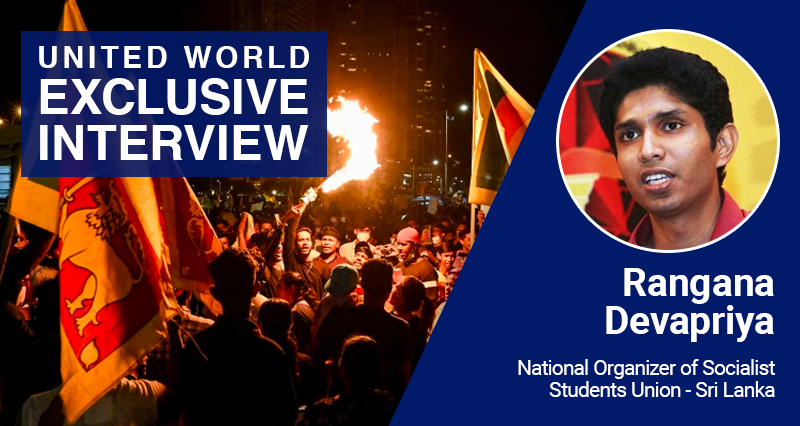
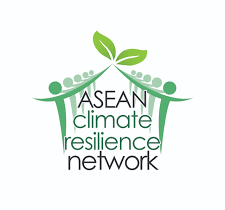
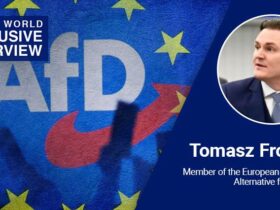

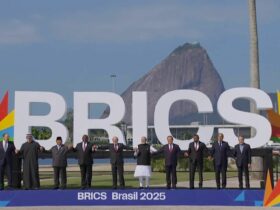
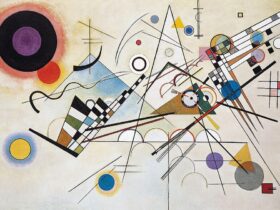

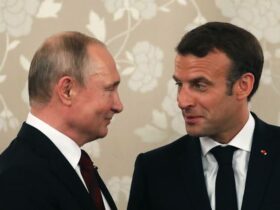


Leave a Reply